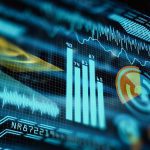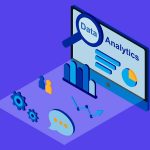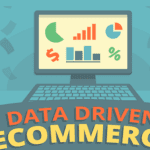The World Economic Forum released an encouraging report for anybody interested in a career as a data analyst. They stated that data analytics will be the fastest growing profession over the next decade. This report is consistent with statistics compiled by IBM. Big Blue said that around 700,000 new data scientist and data engineer jobs will be created by the end of next … [Read more...] about 3 Factors that Will Alter Demand for Data Analysts Over the Next Decade
Big Data
Learn everything you need to know about big data. Find out how companies are using this revolutionary technology and what it means for your business strategy.
How Data Tech is Supporting the Growing Gig Economy
It's more possible than ever these days for anybody to be an entrepreneur in their own right. The rise of the gig economy' has opened the doors for people to monetize their skills on their own schedule. There are plenty of websites available for freelancers to connect with clients for business support and independent contracting for various tasks and short-term projects. This … [Read more...] about How Data Tech is Supporting the Growing Gig Economy
In 2019 – Being Data-Driven Enterprise Is A Blessing Or A Curse!
Data is everywhere; it can give both an accurate insight and the fog of visibility at the same time. Over recent years, streaming data technologies has become the latest norm whether it's through the internet of things (IoT), Mobile and Big Data Pipelines. Several businesses are found struggling to put better data management practices. Unrelenting pressure from … [Read more...] about In 2019 – Being Data-Driven Enterprise Is A Blessing Or A Curse!
Importance of Data In Assembly Lines Modernization
Henry Ford was not the first to use an assembly line process for manufacturing, he was one of the most innovative. He reached higher efficiency on his production floor than his competitors and did it all without the analytics we have today. While not all of his techniques are proving to be as useful in office settings as they are in the factory, other industries can learn a lot … [Read more...] about Importance of Data In Assembly Lines Modernization
The Need for Diversity in the Cybersecurity Workforce
By 2021, there will be 3.5 million cybersecurity job openings. This may be a good time to go back to school to be trained in IT. It's also a good idea to read everything you can get your hands on about cybercrime, particularly the latest breaches and why companies ended up so exposed. With the major shortage of cybersecurity professionals today, companies may rush to fill in … [Read more...] about The Need for Diversity in the Cybersecurity Workforce
What is big data?
Big data is a term that refers to the massive amount of digital data created and shared every day. Big data can transform how we live, work, and communicate. It can be used to improve everything from public health and urban planning to business and marketing.
Big data is also changing the way we think about privacy and security. The volume, velocity, and variety of big data present challenges and opportunities for organizations and individuals. Regardless, big data is here to stay, and its impact will only continue to grow in the years to come.
What is big data analytics?
Big data analytics is the process of turning large, complex data sets into actionable insights. Businesses use various analytical tools and techniques, including machine learning and statistical analysis, to do this.
Big data analytics can be used to improve decision-making in areas like marketing, operations, and customer service. It can also be used to identify new business opportunities and optimize existing processes. With the help of big data analysis, businesses can gain a competitive edge by using their data better.
Want to learn more about big data? Datafloq has courses available. Contact us to get started.
When was big data introduced?
The term big data was coined in the 1990s, with some giving credit to John Mashey for popularizing the term. However, the concept of big data has been around for much longer.
Where does big data come from?
In the early days of computing, scientists and businesses began to realize that the amount of data being generated was increasing exponentially. As a result, they began to develop new methods for storing and processing data.
Over time, these methods have become increasingly sophisticated and have played a key role in enabling businesses to make sense of vast amounts of information. Today, big data is used in various industries, from retail to healthcare, and its importance is only likely to grow in the years to come.
What are examples of big data?
One of the most common examples of big data is social media data. With over 2 billion active users, Facebook generates a huge amount of data every day. This includes information on user interactions, posts, and even location data. Analyzing this data can help companies better understand their customers and target their marketing efforts.
Another example of big data is GPS signals. These signals are constantly being generated by devices like cell phones and fitness trackers. When combined with other data sets, GPS signals can be used to provide insights into everything from traffic patterns to human behavior. Finally, weather patterns are another type of big data set. By tracking these patterns over time, scientists can better understand the impact of climate change and develop strategies for mitigating its effects.
How do companies use big data?
Companies use big data in marketing, product development, and customer service. By analyzing large data sets, businesses can identify patterns and trends that would be otherwise difficult to spot. For example, a company might use big data to track customer behavior patterns to improve its marketing efforts.
Alternatively, a company might use big data to improve its products by identifying areas where customers are most likely to experience problems. For instance, big data can be used to improve customer service by finding pain points in the customer journey. Ultimately, big data provides companies with a valuable tool for gaining insights into their business operations.






